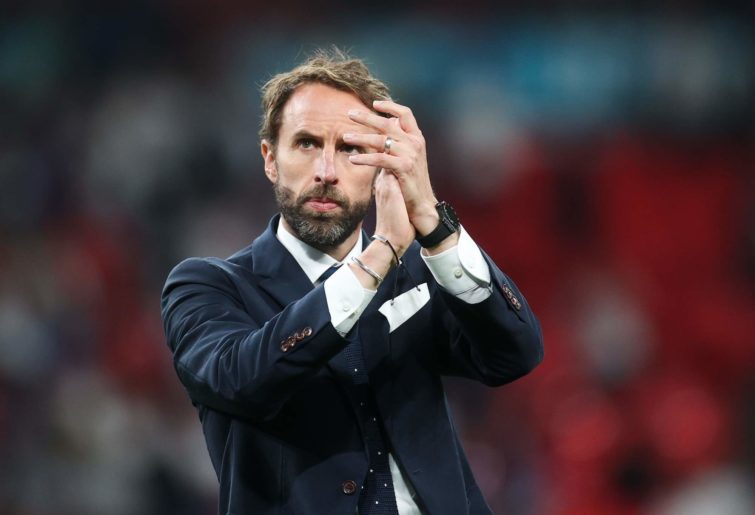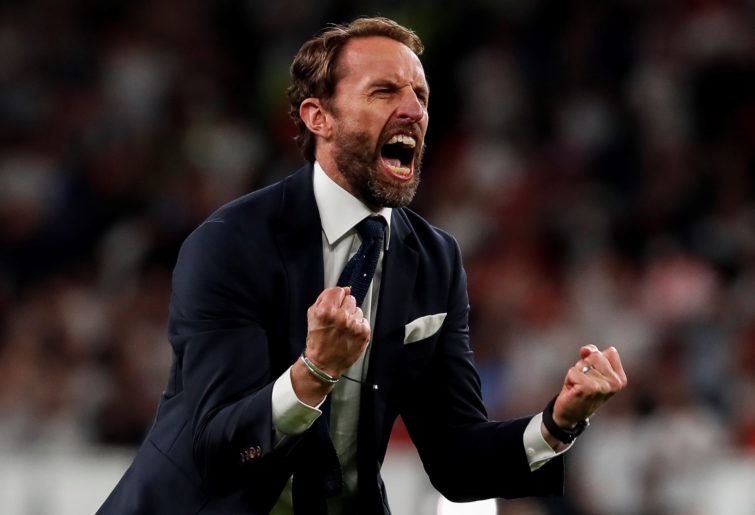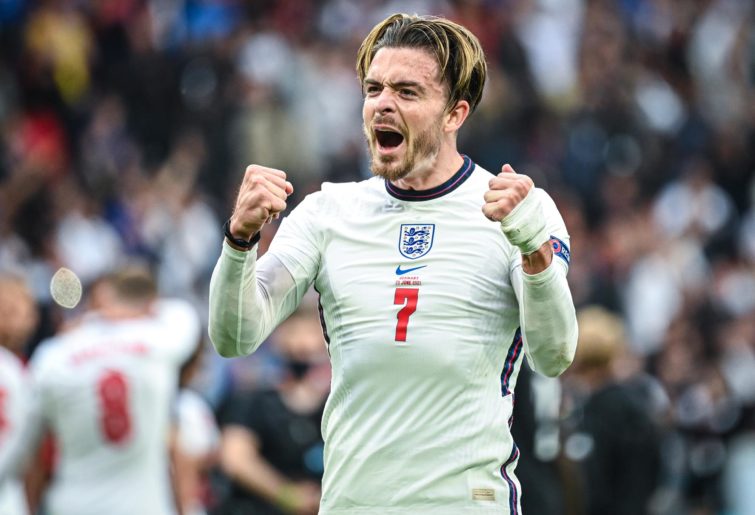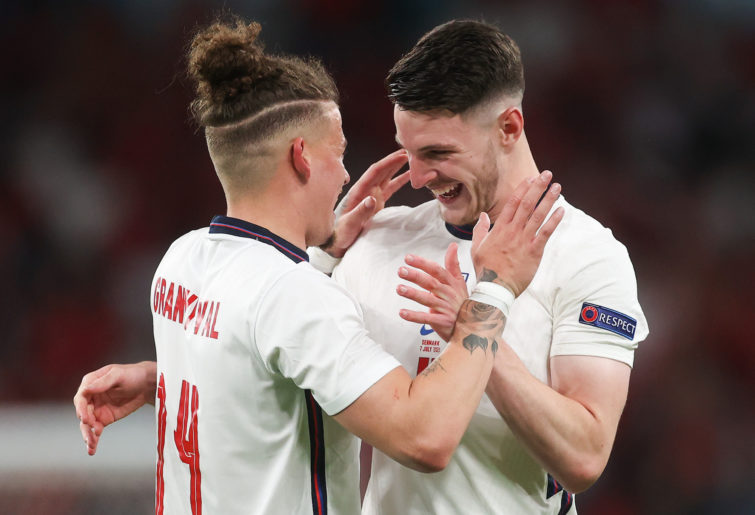Arnie has turned the Socceroos into a genuinely entertaining side to watch
Australia’s 1-0 defeat to England was a combination of some of the most free-flowing football we’ve ever seen in the Graham Arnold era, coupled…
Opinion
England put in an ordinary performance against Hungary, and a barely much better one against Germany, and now people are piling in, saying it’s time for Gareth Southgate to go.
Is it? Really?
England have been so much a better team in the years of Gareth Southgate’s tenure that it’s clearly and plainly difficult for these knockers to remember just how bad England were before he stepped into the utter disarray to take on the job when nobody else wanted it.
Cleaning up after Sam Allardyce’s mess and two decades of bang-average performances, failure was close to an impossible task, but Southgate answered when his country asked and he has done a frankly incredible job.
Southgate isn’t perfect. His persistence in picking Mason Mount, who offers absolutely nothing at international level, infuriates me to the point of utter exasperation.
And his failure to comprehend just how much Jack Grealish brings to the team, and just how essential he is to England taking the final step and winning a major tournament, is equally exasperating.
But Southgate is as close to perfect as England have had in many a long year. It was two decades ago, if you go back to Terry Venables’ third place in Euro 1996, or almost three decades if you go back to Sir Bobby Robson.
Southgate’s shortcomings are so few that England almost won Euro 2020 anyway. And what’s more, those shortcomings can be fixed.
That’s right. They can be fixed.

(Photo by Carl Recine – Pool/Getty Images)
In almost any other workplace, the holder of a job reports to a more senior person who is there to guide them if they need help and set them straight if they go wrong.
Bear with me. We all know that incompetence all too frequently gets promoted in the corporate world, so for the purposes of this piece, let’s pretend things are how they should be – the best, most capable people are running the show.
It should be the same for the England manager.
What England needs is not for Southgate to be prematurely or ineptly sacked but instead formally appraised and directed and helped on how to remedy his mistakes.
He hasn’t made many, but he keeps making the same ones and that’s why his superior needs to step in instruct him to stop repeating them.
Those mistakes, as the knockers know as well as anyone else, are his over-cautious and negative approach to big games.
1. Picking teams to try not to lose games rather than win them. The Euro 2020 final was an absolute case in point.
2. Focusing too much on defensive ability even in the specialist attacking roles, rather than giving his attackers a bit more licence to tear teams apart.
3. Going into his shell to try to protect leads with negative substitutions, which simply invite opponents on, rather than continuing to be the aggressor and keep the pressure on the opposition.
So what would his appraisal – a brief version of it at least – look like?
This is what the performance appraisal should include.
Team culture
It is exceptional. He has removed all egos and pre-ordained rights to selection entirely. There is no longer any preferential selections based on club allegiances, name over form, long-since-gone performances or any other non-bona fide criteria.
He has created the highest level of togetherness in the England team since Euro 1996, and arguably even more than that.
A+ Keep up the exceptional work
Squad selection
He picks players on merit alone and gives young players a chance. If you’re playing well enough, you’re in.
He is the only England manager to do this in such a true and pure fashion in living memory.
A+ Keep up the exceptional work

(Photo by Han Yan/Xinhua via Getty Images)
Tournament nous
He has an excellent understanding of major tournaments and how to go a long way in them. Taking the final step and winning one is the aim, so there is still room for improvement.
A- Keep up the really good work but take note of the improvements that are required, as stated below
Results
They have been mostly excellent. Impressive qualification campaigns were followed by reaching the semi-finals of the World Cup and the final of the Euros.
B+ Very good work but winning a major tournament is the objective
These are the results in more detail.
Team formation
The formation 4-2-3-1 has worked exceptionally well for England in major tournaments.
I am noting that England’s centre backs are not truly world class and would be exposed against top sides if the team is going with just one holding midfielder. But playing the two holding midfielders works beautifully. This is a big tick.
3-4-2-1 or 3-4-1-2 systems do not suit England’s players and haven’t shown any evidence of working for England in recent times.
We don’t wish to see three at the back used at all in competitive games (including Nations League matches), and preferably not in friendlies either.
A- Keep up the good work
Team selection
In defence, although England’s centre backs are not genuinely world class, the team concedes very few goals because the defenders are very well drilled and perform very well, as does the goalkeeper.
This is a big tick on selection and defending.
In the midfield, two holding midfielders cover the defence and both Declan Rice and Kalvin Phillips are talented enough to join attacks.
The way the team plays with these two sitting in front of the defence is very solid and hard to break down. This is a big tick.
In attack, two aspects of your team selection leave a lot to be desired and constitute one of your major failings to date.
1. Mason Mount continues to deliver ineffectual performance after ineffectual performance at international level.
He is rarely able to beat a man, frequently giving the ball away with fluffed passes, and posing next to no problems for opposition defenders.
He offers next to nothing at international level as an attacker. You need to stop picking him.
2. Jack Grealish is the most creative player in England and the best on the ball.
Pep Guardiola’s total misuse and mistreatment of him, yelling in his face from inches away and stifling his game so much that he’s scared to take anyone on when wearing a Man City shirt, is irrelevant to England and is Man City’s owners’ problem.
In his substitute appearances for England, he has invariably offered and created more in his short time on the pitch than the rest of team put together.

(Photo by Marvin Ibo Guengoer/Getty Images)
When he’s started games, he’s invariably been England’s best player. And when he came on against Italy in the Euro final, England suddenly wanted to play again and Italy lost their boldness, retreating after having had the run of the pitch for over half an hour.
If you ask any opposition defenders who they would least like to face in the England team, their answer would be Jack Grealish. He should be the first name on the team sheet after Harry Kane in every match.
You must pick Jack Grealish in your starting XI and only remove him if injured or clearly not performing in a given match.
Do not take him off for any other reason, especially not to try and close a game out, because taking him off puts more pressure on the rest of your team (see below).
Tactics and substitutions
Despite your insistence that England are a positive team, your tactics and substitutions are too negative too often.
The team is frequently too passive in the final third, not going hard enough at opposition defenders and not pressing opposition defenders and midfielders when they are in possession.
The team is also too negative in the biggest games, invariably sitting back too deep and allowing opponents too much time and territory on the ball, especially after taking the lead.
Prime examples are the World Cup semi-final and the final of Euro 2020. Your team took the lead in both games and rather than keeping the pressure on the opponents (not going gung-ho by any means but maintaining a genuine intent to attack while holding defensive shape), you sat back more and more and allowed Croatia and Italy into the game, especially after half time.
Sitting back on a lead in big games against top opposition is simply an invitation to the opposition to come at you, and it is simply a matter of time until the opposition scores.
Your substitutions have at times been equally negative. Taking off Jack Grealish, the player the opposition fears the most, is a mistake you continually repeat.
People like Alan Shearer and Gary Lineker praised you for being brutal by taking him off against Denmark in the Euros after he’d only come on as a substitute, but you were very lucky Denmark ran completely out of steam.
It was a terrible decision. England were in complete control of the game before you did that.
Denmark had offered nothing for over half an hour but when you took off Grealish, you openly invited Denmark on because they knew you wanted to just sit back and protect your lead.
You put your own team on the back foot rather than the opposition (for whom you did the complete opposite).
Denmark came out swinging and offered more in the second half of extra time than they had for well over half an hour.

(Photo by Carl Recine – Pool/Getty Images)
Instead of cruising to victory, your team spent the last portion of the match trying to keep Denmark out after you invited Denmark onto you.
Sitting back too passively, and making lead-protecting substitutions, is negative and sends the message to the opposition to come and attack.
You can’t do that against sides with the capability to hurt you.
You should not make any more lead-protecting substitutions in tournament games unless the opposition are all over you, and you should not sit back after taking a lead.
Overall assessment
It has been exceptional work for the most part. A World Cup semi-final and a Euro final are fantastic achievements.
But being brutal, it could and should have been better. If you make the changes we’re directing you to, we have confidence it will be next time.
So, after all that, the reasons England haven’t won a major tournament under Southgate can be narrowed down to him not picking Jack Grealish, sitting back a bit too much at times, and making negative substitutions when he doesn’t need to.
The grass is not greener. It rarely ever is.
England fans should be helping Southgate try to win the World Cup, not trying to get him kicked out of his job before he even gets to Qatar.